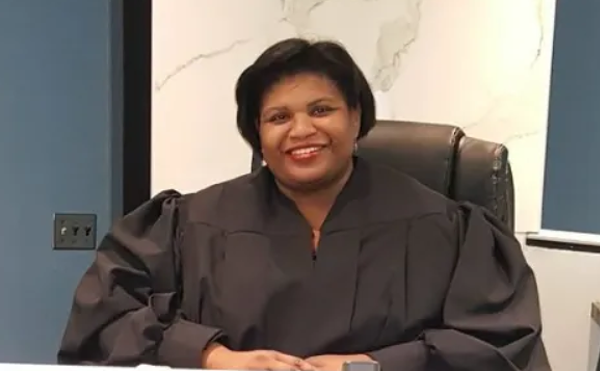Last week, as this rag went to press before the Fourth of July holiday, it appeared that Gov. Rick Snyder was poised to sign three pieces of legislation that critics denounced as "voter suppression" bills.
The fact that such legislation is part of the GOP's national strategy to limit the turnout of left-leaning voters come November helped motivate us to put this issue on our cover as we headed into the celebration of this nation's founding.
But between the time we went to press and the issue hit the streets, our nerd in chief surprised many observers — including us — by bucking his own party and vetoing the legislation.
Cynics that we are, our immediate thought was: Why?
We certainly thought the vetoes were appropriate. News Hits agrees with Bruce Fealk, director of communications for the nonprofit MERA, that the bills, and other similar pieces of legislation being either considered or enacted in states around the country, were a "solution in search of a problem."
As we've said before, it's not voter fraud but rather election fraud that's the real problem that needs to be addressed.
But the bills that Snyder rejected, and similar legislation in other states, are a high priority for the GOP, both in Michigan and nationally.
Was this, we thought (cynically) simply an attempt by Snyder to show independents and liberals that he's not a lockstep right-winger?
We can't look into the governor's heart to know what motivated him. All we can say is that the guv, who's taking a lot of heat for signing what critics say is an anti-democratic emergency manager bill earlier this year, just made it much more difficult for those same critics to claim Snyder is a completely partisan toady.
It took some guts for Snyder to stand up to his party on this issue. As much as we disagree with a lot of stands Snyder has taken, he deserves props for doing the right thing in this case.
As David Firestone, a member of the New York Times editorial board, noted in a blog last week: "The pressure for these kinds of bills, many of them written by the conservative American Legislative Exchange Council, has been too great for many Republican governors to resist. Mr. Snyder adhered to the country's highest ideals by saying no."
Among those praising Snyder was U.S. Rep. John Conyers, a Detroit Democrat who anchors his party's far-left wing.
"I was strongly opposed to the voting measures passed by the Republican-controlled state House, and I am pleased Gov. Snyder did the right thing and vetoed three of the measures. Instead of making it more difficult to register to vote and to vote, we should be reducing barriers to the ballot box" Conyers said in a press release. "There is no more fundamental right in our democracy than the right to vote. I hope that both parties can work together in Lansing, Washington and around the nation to facilitate this precious right.
"The Governor vetoed SB 754, which would have required a photo ID for voter registration and implemented new restrictive regulations on voter registration organizations; SB 803, which would have required individuals to attest to their citizenship when voting in person or by absentee ballot; and SB 5061, which would have required a photo ID for picking up absentee ballots in person."
There was a caveat from Conyers, who pointed out that the governor "did not veto SB 751, which will create an inactive voter list and require absentee ballots from a class of voters on that list to be automatically challenged. I am concerned that this measure will prove harmful to voting, but appreciate the important vetoes of the other measures."
In fact, Snyder approved 11 of the bills included in what was deemed an "election reform" package. However, there was mostly loud applause, from both the middle and the left. Sue Smith, president of the League of Women Voters of Michigan noted that, "On the eve of Independence Day, this is a huge victory for American democracy."
Others throwing kudos Snyder's way included the state AFL-CIO, Michigan Common Cause and the Michigan chapter of the nonprofit group We Are the People. That group's director, Todd Cook, issued a statement pointing out that "thousands and thousands of voters asked Gov. Snyder to veto this ill-conceived legislation, including more than 2,800 people who signed a petition from our coalition of seniors, students and working families. We're glad he listened to us."
A spokesman for Republican House Speaker Jase Bolger said in a press release that the GOP governor vetoed "very reasonable" election law changes.
"It is not unreasonable to expect that people handling voter registrations should receive some basic training," Bolger spokesman Ari Adler said in a statement. "Speaker Bolger never bought into the rhetoric being spewed by liberal special interest groups determined to stop reasonable reforms designed to protect the integrity of elections."
For Michigan election watchdogs like Jan BenDor, with the group MERA, the only rhetoric being spewed was coming from the right. Her group helped generate hundreds of phone calls and e-mails from people urging Snyder to veto the legislation. But she and other feared Snyder wasn't listening to them.
"We were feeling like Sisyphus pushing a rock up a hill," BenDor told us. "The vetoes came as a very pleasant surprise."
Muck job
In another update to a recent MT cover story ("Crude awakening," June 27), the U.S. Department of Transportation's Pipeline and Hazardous Materials Safety Administration (PHMSA) has proposed a record-setting $3.7 million fine for Enbridge Energy, the owner of a pipeline that ruptured near Marshall two years ago, spilling an estimated 800,000 to 1 million gallons of Canadian tar sands oil into the Kalamazoo River.
The federal investigation found "multiple violations of its hazardous liquid pipeline safety regulations related to integrity management, failure to follow operations and maintenance procedures, and reporting and operator qualification requirements," according to a government press release.
Among other things, PHMSA is accusing Enbridge of failing to repair multiple problems, including corrosion and possible cracks, found in the pipeline before it ruptured. Some of those flaws were detected as far back as 2004, the administration alleges.
The investigation also found that the company continued pumping the highly toxic form of crude oil through the pipeline after warnings of a leak had been sounded, worsening the scope of the catastrophe. As a result, a 38-mile stretch of the Kalamazoo River was contaminated. The company has spent upward of $700 million to clean up the spill.
"We appreciate the hard work and due diligence of PHMSA and others who are investigating this incident," Enbridge spokesman Jason Manshum said in a statement released to media last week. "We have worked closely and cooperatively with all federal and state agencies ... throughout the investigation of the Line 6B accident, and are now reviewing the [report] in detail. We will not comment specifically on the contents of the [report] until that analysis is complete."
News Hits was written by Curt Guyette. Contact the column at 313-202-8004 or [email protected].





